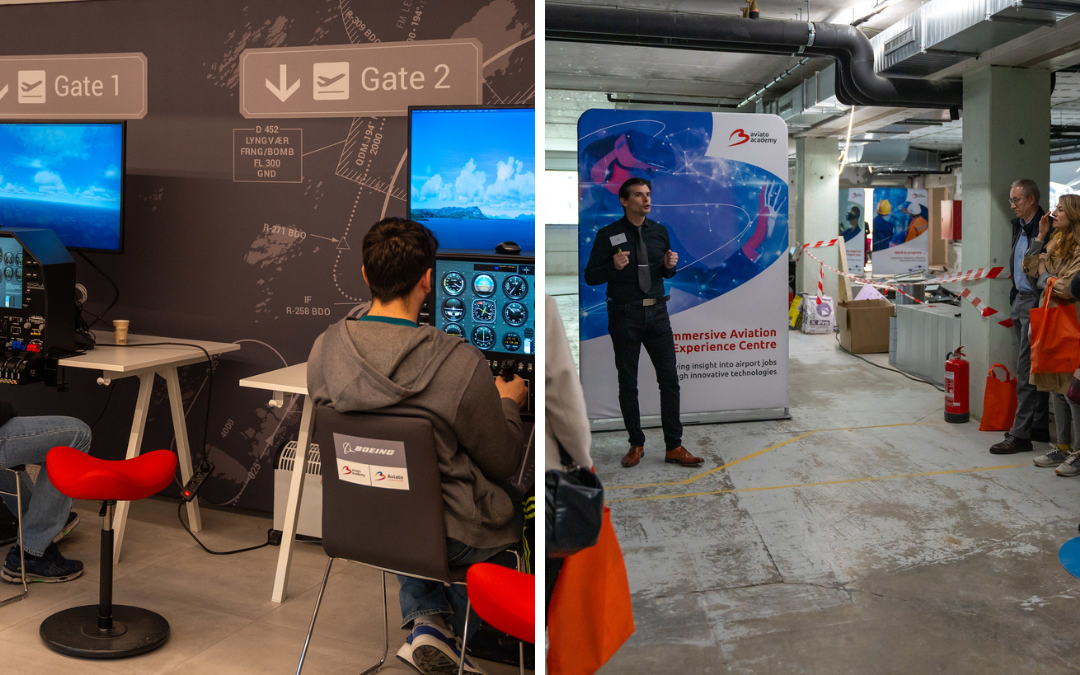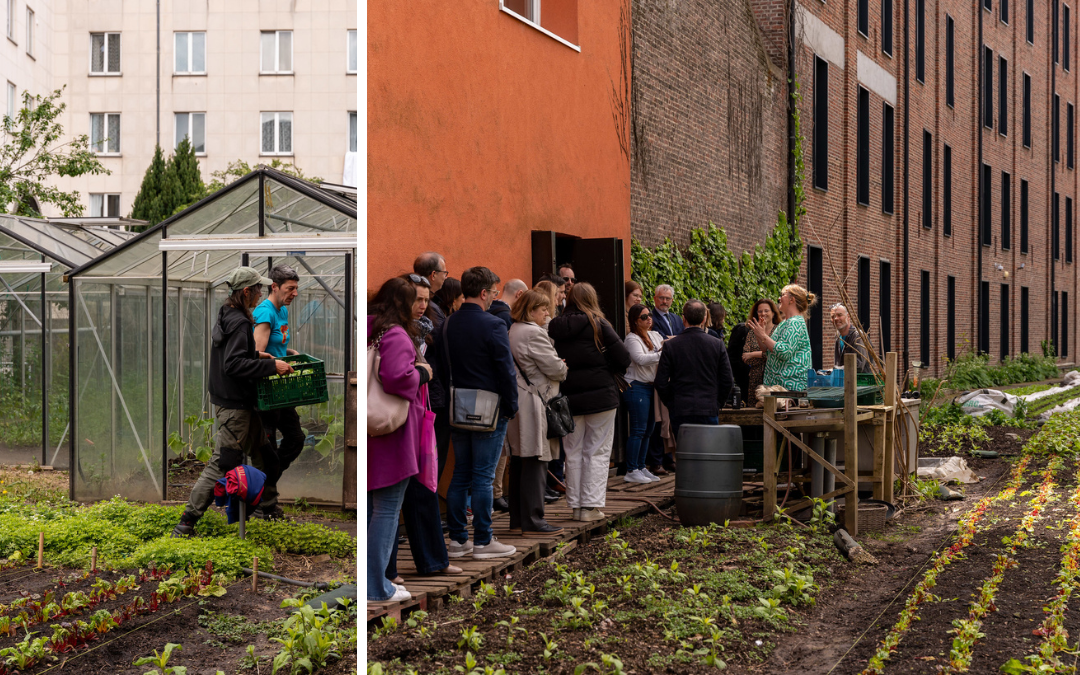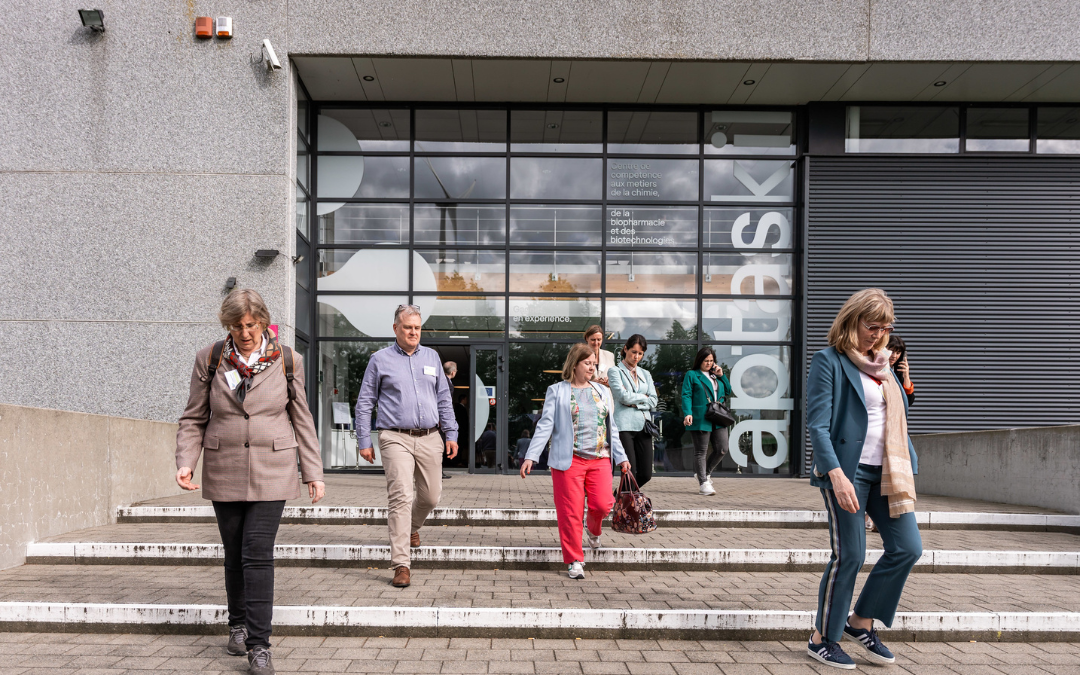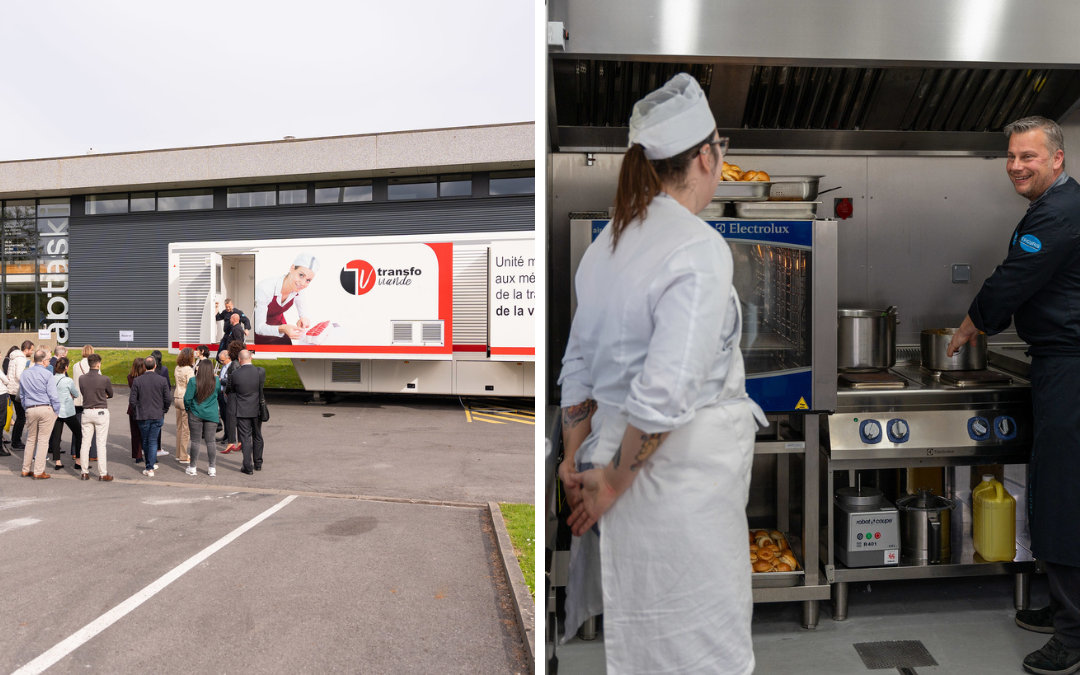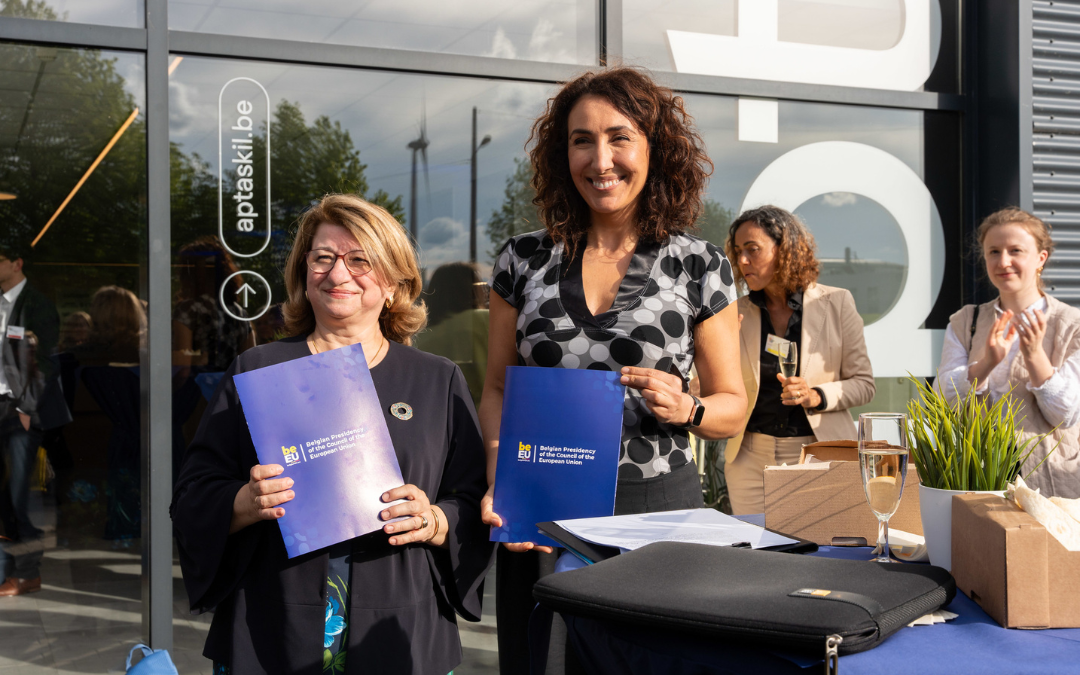The first visit awaited us at Zaventem Airport
The airport is located in Flanders, the north-western part of Belgium and the Dutch-speaking area. Brussels Airport has always invested in appropriate and modern education and training for its approximately 30,000 direct and 35,000 indirect employees. Their educational centre, Aviato Academy, has been dealing for many years with the challenges of recruiting and selecting the right people, training them and continuously upgrading their skills in line with rapid technological and other changes. It’s not just about technical skills influenced by the digital and green transitions; they also develop soft skills.
There is a shortage of potential new staff, so they strive to identify and retain talent. The Aviato Talent Hub, which they showed us, is still in the making – bare walls, cables you still trip over, etc. But the first displays are already there, promising technology-rich, forward-looking opportunities for acquiring unique experiences, knowledge and skills for future professions in aviation and related industries. I was amazed by the enthusiastic, credible and proud manner in which their director presented something that was just transitioning from dreams to reality.
In the Brussels-Capital Region, we were impressed by urban gardens and dedicated gardeners
We visited the Groot Eiland Training Centre, which operates on the principles of the social economy. The centre offers opportunities for Brussels residents who are far from the labour market (people with disabilities, former prisoners and other vulnerable groups) to develop their talents, creativity and various skills. The experience of leadership from skilled mentors is crucial. Participants are trained in urban farming, processing and selling produce, carpentry and hospitality.
Their employment prospects after completing the training are high. Aunt Nena, as they call the lively manager of no fewer than eight restaurants across Brussels, passionately described the efforts and achievements of the participants. She explained that they do not try to retain them in this safe, understanding environment. Instead, they train and encourage them to establish themselves out into the world. Nevertheless, nearly half of the employees in the restaurants, associated urban gardens and two carpentry workshops come from their ranks – because they are excellent and have a sense of belonging.
We concluded our journey in Wallonia, the southern part of Belgium and the French-speaking area
There, we were introduced to two of the 22 Walloon Competence Centres. These centres have been established in the region as a brand for effective and innovative training for future professions. They are based on public-private partnerships and, in addition to training and providing modern technical facilities, they also focus on raising awareness about occupations and the necessary skills. They operate exclusively based on the needs of the specific area or industry.
The Aptaskil Competence Centre provides training for the chemical, pharmaceutical and biotechnological industries. Its equipment is state-of-the-art, almost exactly like what participants will use in their future workplaces. The mentors, who are also experienced in practice, introduce participants to the real and virtual worlds of each type of work. The training is tailored to the needs of future employers as well as participants, including employees, the unemployed, students and teachers.
“If participants don’t come to us, we go to them” is the motto of the EPiCURiS Competence Centre. In three mobile units, which they take to the courtyards of their clients – companies – they provide training for the food industry, including baking, butchery, hospitality and catering. The training sessions are tailored to the needs of employers, particularly small and medium-sized enterprises. Employees, job seekers, other individuals, students and teachers can participate in this training.
Participants from EPiCURiS also delighted our taste buds with excellent food at the final part of our journey. During this time, high representatives from the Walloon government and the European Commission officially received the National coordinators’ closing statement on the EYS. Among other things, this statement calls for continued attention, measures and practical efforts to upgrade all types of skills.
Zvonka Pangerc Pahernik, MSc (zvonka.pangerc@acs.si), SIAE


